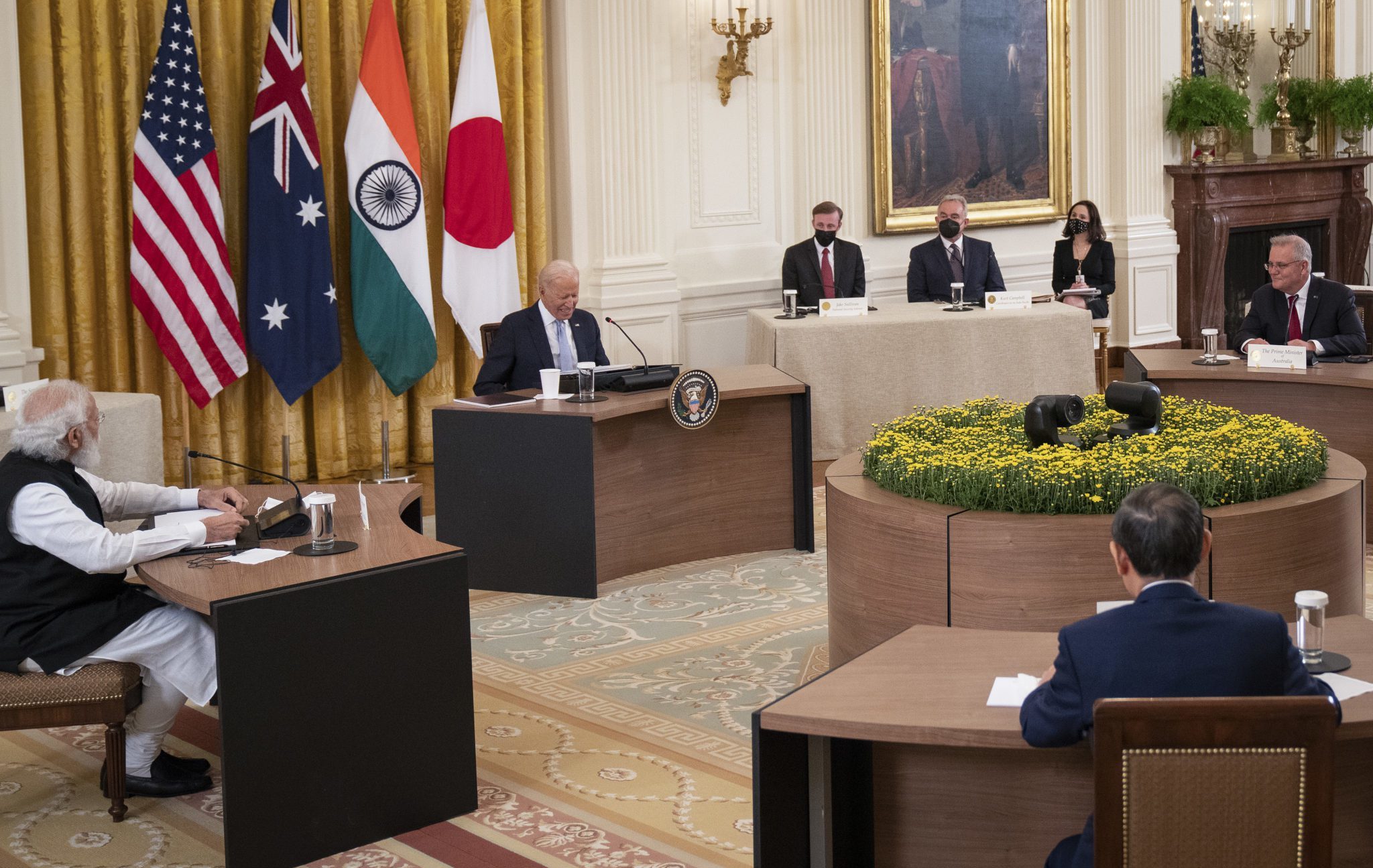Biden’s Indo-Pacific Strategy is a Bad One

Amid tensions with Russia, the Biden administration finally released its Indo-Pacific Strategy (IPS) with little fanfare. For the moment, the administration seems to have all eyes on a potential conflict that matters little to U.S. interests. While the strategy references America’s “vital interests” in the Indo-Pacific, it neglects to define them. These interests are framed around historical U.S. commercial ties to the region and an argument that the United States “can only be secure if Asia is, too.” With such broad definitions, these “vital interests” could amount to anything. This is unsurprising since the “strategic goal” of a “free and open” Indo-Pacific is nothing more than containing China and preserving American “leadership”—i.e. hegemony—in the region. Because it fails to define U.S. vital interests or take into consideration the global trend toward multipolarity, the IPS is setting America up to fail.
The United States only has two vital interests in the Indo-Pacific region: avoiding a war with China and accessing markets. Both are necessary to preserve the existence of the United States while bolstering economic growth that can be transformed into defensive power. The Biden administration’s IPS will do little to advance either.
Instead of shifting more defensive responsibilities to our allies, Washington seeks to transfer even more manpower and advanced weaponry to the region. While this might seem like “renewing” American alliances, it will likely do little more than propel China’s military modernization program. Additionally, expanding U.S. security involvement in the Indo-Pacific will heighten the risk of conflict. If the United States “can only be secure if Asia is, too”, then this would seemingly justify U.S. military action in any Asian conflict.
Most significant is the possible change to the U.S. one China policy—“ensur[ing] an environment in which Taiwan’s future is determined in accordance with […] the best interests of Taiwan’s people”—despite the IPS claiming consistency. Looking at the documents that form the American one China policy, the statement appears to be a major change. Washington seems to be declaring it knows what is best for Taiwan’s people. So much for freedom of choice.
Given this position, the United States looks to be opposing any reunification with China, peaceful or otherwise. If so, the stakes for conflict with China have jumped. This is a red line for Beijing. They will fight for it and the American people could be on the receiving end. Such a conflict would both imperil thousands—possibly millions—of American lives and significantly damage U.S. prosperity, let alone that of the world. The United States would be less secure. Not to mention, Washington could risk a nuclear exchange—the very survival of the United States—if it felt it couldn’t uphold Taiwan’s independence through conventional means.
Washington seems to care about preserving U.S. global primacy and hegemony in Asia at an unsustainable cost. The U.S. cannot be everywhere, nor can it contain China’s power by hemming it within its borders. Historically, China was the regional leader of East and Southeast Asia. And China is well on its way to reclaiming regional leadership. Rather than allow Beijing greater sway in its neighborhood, the Biden administration looks poised to “beat China” at any cost—possibly even American lives and prosperity—over a trajectory that is unlikely to change.
Instead of wasting resources on non-vital interests, the United States should practice more restraint, devise a real economic strategy, and recognize the world as it is. Foregoing provocative moves like expanding AUKUS to other countries could help slow the Asian arms race and reduce tensions. Washington should also reduce its enthusiasm for de facto recognition of Taiwan. The previous history of diplomatic engagement worked and the status quo proved stable. Maintaining the status quo is America’s best approach to upholding peace in the Taiwan Strait.
The United States also needs a real trade policy toward the Indo-Pacific. Standards and rules are great, but the proposed Indo-Pacific Economic Framework will be voluntary, unenforceable, and likely only include advanced economies. Instead, Washington should use the USMCA as a model to renegotiate CPTPP or create a new trade deal to fight for American workers and secure market access for U.S. goods and services. Asian countries want trade and America will increase its economic power.
Finally, America must learn that the return of great power politics, which dominated history prior to World War II, is the end of U.S. unipolarity. The United States cannot overextend itself for the sake of protecting a leadership image—especially in the Indo-Pacific. It should seek to find ways it can benefit from a stronger China while focusing more on upholding American leadership in the Western Hemisphere.
China is unlikely to achieve hegemony in Asia. Geography—mountains, deserts, and the largest body of water along its borders—prevent efficient power projections. Not to mention the sheer existence of India, Russia, and Japan check any grandiose ambitions. Investing in ourselves will do a lot more for our security and survival.
The Biden administration doesn’t have an IPS that secures America’s vital interests. Instead, acting on this strategy will damage U.S. interests by needlessly increasing the chance of conflict with China.
Quinn Marschik is the lead Indo-Pacific analyst at a global consulting firm. He was formerly the policy advisor to the deputy undersecretary for international affairs at the U.S. Department of Labor during the Trump administration.